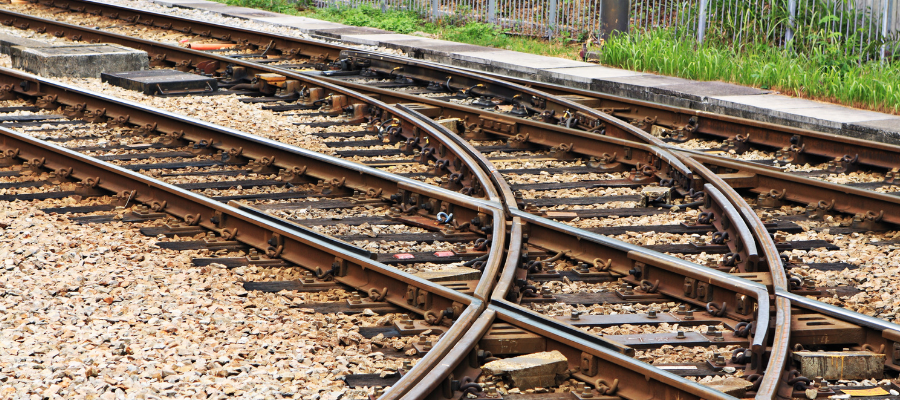🕒 Article read time: 2 minutes
Rebalancing Britain – the Integrated Rail Plan

In November 2021, the government set out its Integrated Rail Plan (IRP), its £96 billion strategy to transform the rail network in the North and Midlands.
To understand the implications of the IRP on the economy, rail capacity and connectivity, the government launched an inquiry seeking evidence to which Logistics UK submitted its response earlier this year.
There are two key ways in which the IRP will add to rail freight capacity: the upgrade of the TransPennine route, which will deliver enhanced freight capacity directly; and the construction of HS2, which will indirectly increase capacity through the release of capacity on existing lines.
TRANSPENNINE ROUTE UPGRADE (TRU)
The IRP commits the government to significant improvements to the TransPennine Main Line – the 76-mile route running along the North of England between York and Manchester, via Leeds and Huddersfield – including electrification of the whole route, digital signalling throughout, significantly longer sections of three and four-tracking, and gauge upgrades to allow intermodal container freight services.
“The upgrade to the TransPennine Main Line will enable freight services to be maximised regionally, something that Logistics UK has been campaigning for over many years, said Mags Simpson, Head of Policy Engagement at Logistics UK, “This is a landmark development in government thinking on rail freight, as it recognises the importance of allowing container freight services to use rail.”
The upgrade will enable containers to move swiftly from ports in the northeast to major northern cities, which will help to support local economic development and ease pressure on the UK’s congested roads. This should, in turn, help improve the use of northern ports by UK exporters, by providing an additional option to bring goods to the port, competing with direct transport by HGV.
It promises impressive sustainability benefits too: “By removing lorries from the UK’s roads, it supports the UK’s decarbonisation goals,” Simpson argued, “for every tonne of freight transported by rail, the carbon emissions are 76% lower than road freight. We are also pleased to hear of the government’s intention to progress with the electrification of the Transpennine Main Line and Midland Main Line, a vital move in the UK’s mission to decarbonise its economy.”
The IRP does not include details on how much freight is likely to use the Transpennine route following the upgrade; however, increasing capacity for containers is seen as a tremendous benefit for rail and the economy of the north of England, and Logistics UK has argued for many years that it should be done alongside the upgrades targeted at passenger traffic.
HS2: FREEING UP CAPACITY
The delivery of HS2 should release a certain amount of capacity to freight on existing lines, but detailed work is still underway to establish how much space can be released. Based on a Network Rail presentation to the Strategic Freight Network Steering Group, Logistics UK understands that to be an additional two Trains Per Hour (TPH), but an additional four TPH requires additional strategy development from Department for Transport (DfT).
“Logistics UK is urging DfT to find ways and means to boost the additional capacity to four TPH to ensure that the benefits to freight of building HS2 are realised,” Simpson said, “There is no legal guarantee that freight capacity will be released for freight following the building of HS2; instead, there is only a policy commitment which could be changed by future governments. We call on government to provide a much firmer guarantee that HS2 will lead to capacity being released for freight.
“Overall, it appears that rail freight is mostly an afterthought in the government’s plan; Logistics UK and its members would have appreciated further measures to facilitate specific investment into rail freight infrastructure. We urge the government to give greater emphasis to a strategic modal shift from road to rail to support efficient and sustainable supply chains.”
With the inquiry now closed (the submission deadline was 27 January 2022), the first evidence session of the inquiry took place in February 2022, where the Transport Committee heard from stakeholders about the likely effect of the IRP on Manchester and the wider north.
“Logistics UK will continue fighting for the best possible outcome for the rail freight industry and wider economy,” Simpson said.
*www.logistics.org.uk/rail
Published On: 31/03/2022 16:00:07

Comments Section
If you are a Logistics UK member login to add comments.